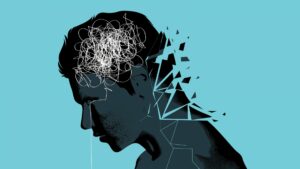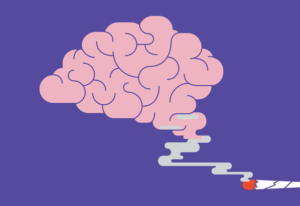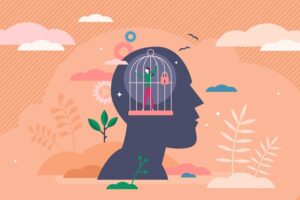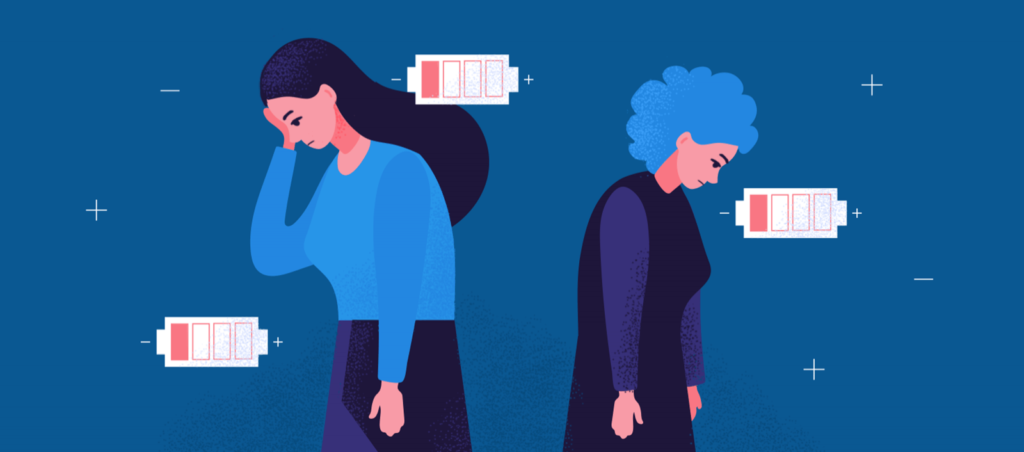Do you feel like you constantly have no energy? Are you always anxious and stressed out? If so, you may be suffering from anxiety and fatigue. These conditions are becoming increasingly common, and many people don’t even realize that they have them. In this blog post, we will discuss the symptoms of anxiety and fatigue, as well as how to treat them. We hope that this information will help you get on the road to recovery!
Contents
Defining Fatigue
Most people think of fatigue as simply feeling tired. However, it is much more than that. Fatigue is a condition that can cause physical, mental, and emotional exhaustion. It can make it difficult to concentrate or even just get out of bed in the morning. Many people with fatigue also suffer from insomnia or other sleep disorders.
There are two types of fatigue: acute and chronic. Acute fatigue is the kind that comes on suddenly and goes away after a short period of time. Chronic fatigue, on the other hand, lasts for weeks or even months at a time. It can be caused by an underlying medical condition, such as anxiety or depression.
Defining Anxiety
Anxiety is a normal emotion that we all experience at times. It can be triggered by a stressful event, such as taking an exam or giving a presentation. For most people, the anxiety goes away once the event is over. However, some people suffer from chronic anxiety. This is when the anxiety does not go away and can even get worse over time.
Chronic anxiety can be debilitating. It can make it difficult to concentrate, sleep, or even leave the house. Many people with anxiety also suffer from depression or other mental health disorders.
Signs And Symptoms

There are many overlapping signs and symptoms of anxiety and fatigue. Here are some of the most common ones:
- Feeling tired all the time, even after sleeping for long periods of time
- Difficulty concentrating or focusing on tasks
- Brain fog or feeling like you can’t think clearly
- Insomnia or other sleep disorders
- Irritability or moodiness
- Muscle tension or soreness
- Racing heart or palpitations
- Shortness of breath or hyperventilation
- Migraines
- Sweating
- Sleep problems (insomnia, restless sleep, etc.)
- Gastrointestinal problems (nausea, diarrhea, etc.)
An individual may vary differing intensities as well as frequencies of symptoms, depending upon personal physiology, psychology and conditions.
Does Anxiety Cause Fatigue?

Anxiety is a mental disorder. However, its symptoms also manifest in physical presentation. One of the most common physical symptoms of anxiety is fatigue. This can make it difficult to concentrate, work, or even just get out of bed in the morning. Anxiety makes us feel fatigued due to various reasons. Some of them are:
- Anxiety causes our brains to work overtime. When we are anxious, our brain is constantly in a state of “fight or flight.” This means that it is constantly on the lookout for danger. As a result, we use up a lot of energy and become exhausted.
- Anxious thoughts have an impact on our sleep patterns and quality. This includes both the quantity and quality of our sleep. When we don’t get enough sleep, we wake up feeling exhausted.
- People with anxiety issues are also prone to panic and/or anxiety attacks. These can be very draining, both physically and emotionally, which can be another contributing factor to fatigue.
- Most people with anxiety report other physical symptoms such as jaw clenching, tightness in the chest and throat, and muscle tension. All of these physical symptoms can lead to fatigue as the body lacks the feeling of rest.
- Minds prone to anxiety may have unconscious triggers to their autonomic nervous system, resulting in adrenaline dumps that deplete energy levels and increase the feeling of fatigue.
- Anxiety can also cause us to breathe more shallowly. This can lead to a lack of oxygen in the bloodstream, which can make us feel tired.
- People who fidget, tremble, shake, and pace when anxious can also use up a lot of energy, leading to fatigue. All of these physical symptoms can lead to fatigue as the body lacks the feeling of rest.
- Anxiety also has an impact on our appetite. Many people with anxiety report either not feeling hungry or feeling nauseous. This can lead to weight loss, which can also contribute to fatigue.
- Often, people with anxiety follow certain rituals or routines in an attempt to control their anxiety. This can include things like checking the locks on the door or washing their hands multiple times. These rituals can take up a lot of time and energy, leaving us feeling exhausted.
Effects On Daily Life
Anxiety and fatigue can have a major impact on our daily lives. These impacts can spread across various domains of life. These include:
Work: Anxiety can make it difficult to concentrate, which can lead to problems at work. It can also make it hard to meet deadlines or complete tasks.
School: Anxiety can interfere with studying and test-taking. It can also impact attendance and participation in class.
Relationships: Anxiety can make it hard to socialize or be around other people. It can also lead to conflict in relationships.
Health: Anxiety can lead to physical symptoms such as fatigue, headaches, and muscle tension. It can also make it hard to take care of other health issues.
Other activities: Anxiety can make it hard to enjoy leisure activities or hobbies. It may also lead to avoidance of certain situations or places.
Quality of life: Anxiety can impact our overall quality of life. It can make it hard to enjoy activities or spend time with loved ones. It can also lead to financial problems. The effect can also impact our well-being in emotional, social, mental, and also spiritual senses.
Anxiety is a common mental disorder that can have a significant impact on our lives. If you are struggling with anxiety, there are many resources available to help you cope with its symptoms. You should speak to your doctor if you are experiencing anxiety or any of its associated symptoms.
Treatment Options

Despite the difficulties and side effects, there are various ways through which one can learn how to manage and cope with these conditions. This can happen either through therapeutic intervention by a mental health professional or by adopting self-help strategies.
Therapy
There are various approaches and techniques of therapy that help in identifying, managing, and reducing the impact of anxiety and related thoughts. Some of the most popular ones are:
- Cognitive-behavioral therapy (CBT) is a type of therapy that can be effective for anxiety. CBT focuses on changing the way we think and behave in order to improve our symptoms.
- Psychodynamic therapy is another type of therapy that can be effective for anxiety. This type of therapy focuses on our past experiences and how they impact our current behavior.
- Exposure therapy (ET) is a type of therapy that involves gradually exposing ourselves to the things we fear. This can help us to overcome our fears and improve our symptoms.
- Humanistic therapy is a type of therapy that focuses on our ability to grow and change. This type of therapy can help us to understand our anxiety and how to cope with it.
Depending upon your need, preference as well as impact of the condition, your therapist may suggest either one, or a combination of the above approaches.
Self Help Tips
There are many things you can do to help manage your anxiety. These self-help tips can be used in conjunction with therapy or on their own.
- Exercise: Exercise can help to reduce stress and improve our overall mood. It is important to find an exercise that you enjoy and stick with it.
- Relaxation techniques: Relaxation techniques such as yoga, meditation, and deep breathing can help to reduce stress and promote calmness.
- Sleep: Getting enough sleep is important for managing anxiety. It is recommended that adults get seven to eight hours of sleep per night.
- Diet: Eating a healthy diet can help to improve our mood and energy levels. Avoiding caffeine and alcohol can also be helpful. Incorporating more fruits, vegetables, and whole grains into our diet can help to improve our symptoms.
- Hydration: Staying hydrated by drinking plenty of water can help to reduce fatigue and improve our overall health. It also lessens the risk of developing anxiety.
- Stress management: Identifying and managing sources of stress can help to reduce anxiety. This may include things like time management or scheduling breaks.
Anxiety is a common mental disorder that can have a significant impact on our lives. If you are struggling with anxiety, there are many resources available to help you cope with its symptoms. You should speak to your doctor if you are experiencing anxiety or any of its associated symptoms.
Conclusion
In conclusion, anxiety and fatigue are common symptoms that can have a significant impact on our lives. If you are struggling with anxiety, there are many resources available to help you cope with its symptoms. You should speak to your doctor if you are experiencing anxiety or any of its associated symptoms.
For more information, please contact MantraCare. Anxiety is a common mental health condition characterized by persistent feelings of worry, fear, and apprehension. If you have any queries regarding Online Anxiety Counseling experienced therapists at MantraCare can help: Book a trial Anxiety therapy session


